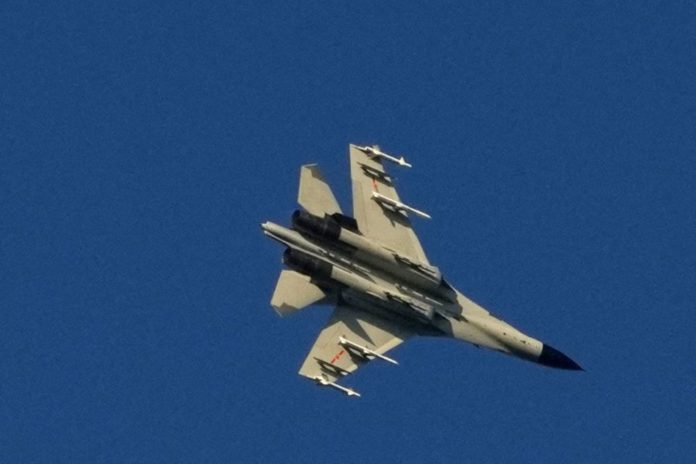TAIPEI, Aug 25 (Reuters) – Taiwan proposed $19 billion in defence spending for next year on Thursday, a double-digit increase on 2022 that includes funds for new fighter jets, weeks after China staged large-scale war games around the island it views as its sovereign territory.
China carried out its largest-ever military exercises around the democratically governed island after a visit this month by U.S. House Speaker Nancy Pelosi. The trip infuriated Beijing, which saw it as an attempt by Washington to interfere in China’s internal affairs.
The overall proposed defence budget by President Tsai Ing-wen’s Cabinet sets a 13.9% year-on-year increase to a record T$586.3 billion ($19.41 billion).
That includes an additional T$108.3 billion in spending for fighter jets and other equipment, as well as other “special funds” for the defence ministry. A statement from the Directorate-General of Budget, Accounting and Statistics did not provide a break down specifics on where the money would go.
The planned defence spending, which is a record high and must be approved by parliament, marks the island’s sixth consecutive year of growth in defence spending since 2017.
The double-digit rise on 2022 marks a sharp increase compared with the island’s defence spending growth in recent years; yearly growth has been below 4% since 2017.
Statistics department minister Chu Tzer-ming said the increase in defence spending will mainly go to operational costs.
“We always give safety and national security the top priority… that’s why (the budget for) operational costs rises greatly,” Chu said, pointing to costs such as fuel and maintenance for aircraft and ships dispatched to counter Chinese military activities near Taiwan.
Excluding the extra budget for military equipment and funds, proposed defence spending represents a 12.9% year-on-year increase, compared with a 20.8% increase in the overall government budget proposed for next year.
That proposed spending accounts for 14.6% of the government’s total spending for next year and is the fourth-largest spending segment, after social welfare and combined spending on education, science and culture, and economic development.
The island last year announced an extra defence budget of $8.69 billion by 2026, which came on top of its yearly military spending, mostly on naval weapons, including missiles and warships.
In March, China said it would spend 7.1% more on defence this year, setting the spending figure at 1.45 trillion yuan ($211.62 billion), though many experts suspect that is not the true figure, an assertion the government disputes. read more
China has been continuing its military activities near Taiwan, though on a reduced scale.
Live-fire drills will take place in a coastal part of China’s Fujian province on Friday and Saturday, just north of the tiny Taiwan-controlled Wuchiu islands in the Taiwan Strait, Fujian authorities said on Wednesday, announcing a no-sail zone.
Tsai has made modernising the armed forces – well-armed but dwarfed by China’s – a priority.
China is spending on advanced equipment, including stealthy fighters and aircraft carriers, which Taiwan is trying to counter by putting more effort into weapons such as missiles that can strike far into its giant neighbour’s territory.
China has not ruled out using force to bring the island under its control. Taiwan rejects Beijing’s sovereignty claims, saying that the People’s Republic of China has never ruled the island and that only Taiwan’s people can decide their future.
Meeting visiting Japanese academics at her office on Thursday, Tsai reiterated that the determination to protect their sovereignty, freedom and democracy would not change “due to pressure or threats”.
“At the same time, as a responsible member of the international community, Taiwan will not provoke incidents nor escalate conflicts,” Tsai said, in comments made live on her social media pages.
($1 = 30.2080 Taiwan dollars)
($1 = 6.8519 Chinese yuan )






